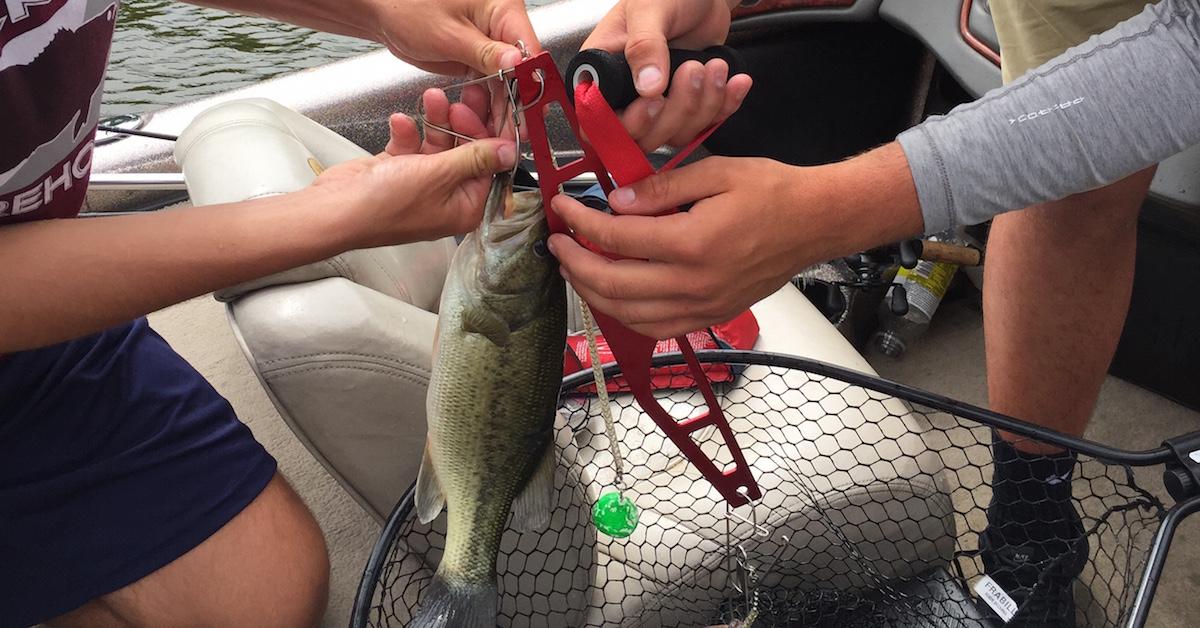7 Tips To Better Handle Your Catch
Along with the catch and release ethic, fish care has been one of the largest contributing factors to the unprecedented improvement in fishery quality we’ve experienced over the last couple decades. Waters that were previously considered ‘dead seas’ now routinely produce catches that anglers in earlier generations would have thought impossible.Obviously, the perfect scenario for fish care is to get any caught fish back into the water immediately. Unfortunately, though, that’s not realistic if you’re a tournament angler or even just want to get a good photo of your catch.For that reason, we thought it would be a good idea to go over some tips for properly handling your catch – in a tournament setting or while fun fishing. If you pay attention to the following seven items, you’ll not only decrease the stress on any individual fish, but also help ensure the resource is available for future anglers.
Support their bellies
As easy as it is to lip a bass, doing so can actually be detrimental to their health, particularly if it’s a biggun. If a big bass kicks hard while lipped, it can actually dislocate its jaw – which makes future feeding impossible and will eventually cause death. Once landed, make sure to support all large bass with two contact points, one in the mouth and one along their belly.
Use a landing net
Boat-flipping a bass is definitely easier and more efficient at times, but letting a bass flop around on hot boat carpet causes them to damage their slime coat – which opens the door to infection. Using a good landing net, especially one with a rubber coating will minimize this damage.
Hold your breath
Taking a bass out of the water removes their ability to breathe, so it’s important to minimize time spent topside. Try holding your breath once you pull a bass out of the water, and aim to either get them back in the water or in the livewell before you have to take another breath. If you need to cull or get a camera ready, put them in the livewell, get everything ready, then take them out and do so. This will give them time to catch their ‘breath’.
Give them oxygen
Modern livewells have all sorts of gadgets available to increase the oxygen levels available to your catch. Make sure to use them. Run your aerators on constantly, particularly if it’s hot, and use the recirculation feature to ensure that new oxygen-rich water is constantly being flushed in.
Watch the temperature
Cooler water holds more oxygen, so as water temperatures rise in the summer, it’s more critical to ensure that there is ample oxygen. Cooling your livewell a couple degrees in the summer can greatly help bass, so keep a few ice packs in a cooler. Make sure to only cool it a couple degrees though, as too much of a temperature change can shock bass and cause serious harm.
Chemicals aren’t always a plus
There are lots of livewell additives available on the market, and although they all advertise beneficial results, most of these claims aren’t supported by research. Obviously the water the bass came from was perfectly fine, so why mess with a good thing? Although most of these chemical additives aren’t harmful, under no circumstances should you use hydrogen peroxide – as this will seriously damage bass’ delicate gill tissues.
Watch the bags
Weigh-in time is one of the most exciting times of a bass tournament, but it’s also the most dangerous for bass. When you bag your catch, there is way less water available for the fish, and oxygen levels and temperatures can get depleted quickly. If you’re trailering, keep the fish in the livewell until the very last minute, and if you do have to bag them, make sure there is an acceptable, regulated holding tank close to the scales to change out the water.
Updated January 5th, 2016 at 4:47 PM CT


